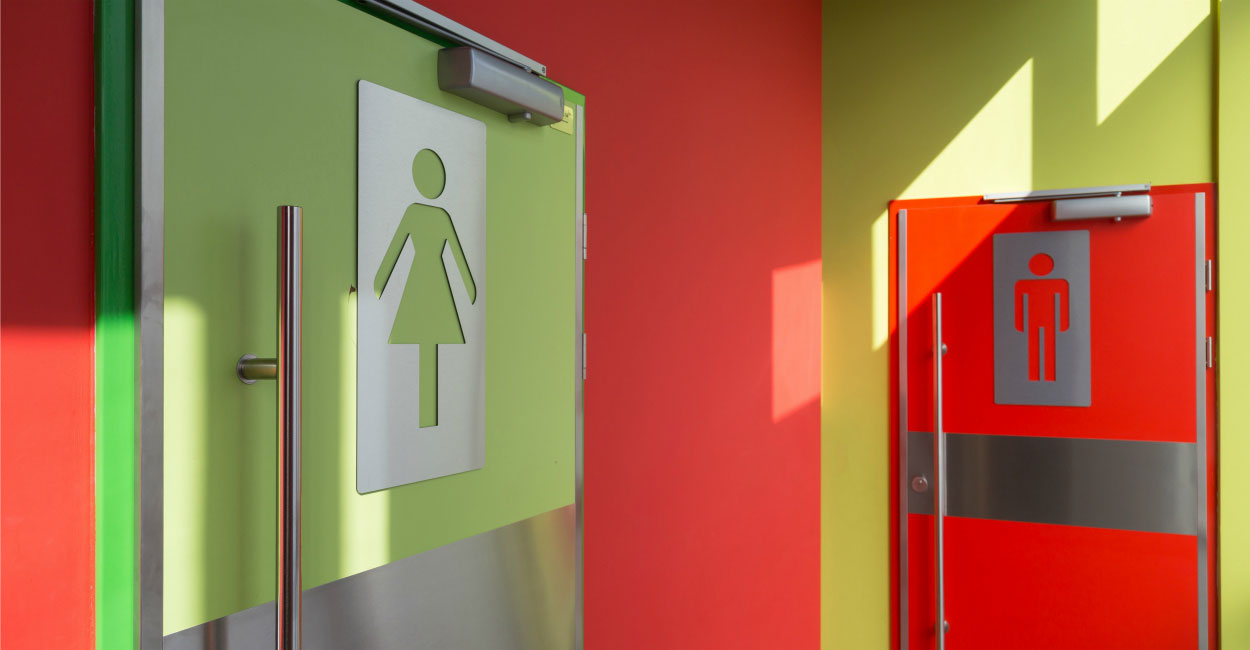by James Gottry
In recent years, a common refrain accompanying nearly every demand for newly invented “rights” has been: “It doesn’t affect you, so you can’t be against it.”
This claim—whether false or true, subjective or objective—has been played as the ultimate trump card.
If you could not point to a direct, immediate, and significant intrusion on your life, then your concerns—no matter how thoughtful and legitimate—were sacrificed at the altar of the New Regime.
Times change.
On Wednesday, Alliance Defending Freedom filed a federal lawsuit on behalf of high school students and parents, asking the court to strike down a Minnesota school district policy that empowers a male student to enter the girls’ locker room and disrobe.
Not surprisingly, many girls have been distressed by the actions of the male student, which include twerking, grinding, and other sexually explicit actions. The response of the district and other authorities to the concerns has been a collective yawn.
This, along with recent actions by President Barack Obama’s Department of Education and Justice Department, illustrates the evolution of the push to manufacture special privileges for a select few.
The pretense that such demands don’t affect the lives of others now has been abandoned, replaced by two options: (1) get over it and get in line; or (2) be pushed to the margins of society, losing your reputation—and possibly your career—in the process.
In version 2.0 of the New Regime, even if you can point to a direct, immediate, and significant intrusion on your life, your opinion is irrelevant (and perhaps bigoted) when compared to “social progress.”
For example, when the New Mexico Supreme Court ruled that wedding photographer Elaine Huguenin and her husband Jonathan must set aside their freedom to peacefully live according to their faith, a concurring justice stated that the pair “now are compelled by law to compromise the very religious beliefs that inspire their lives.” Chillingly, the justice added that this compulsion “is the price of citizenship.”
As the situations in Minnesota, North Carolina, and elsewhere demonstrate, the latest test sites for this theory of “social progress” are locker rooms, showers, and other private changing facilities.
In what would have been an unthinkable battleground just a few short years ago, these tile-floored, plastic-stalled, chrome-fixtured, and (formerly) sex-specific sanctuaries are now ground zero for experiments in the subjective theory of gender.
And the wisdom of the New Regime 2.0 goes like this:
The march toward true liberty requires 18 girls to squeeze into a prison cell-sized changing space or abandon their bodily privacy, and their right to safety and comfort in the most intimate and vulnerable of settings.
Why? So that a “bearded individual” can fully disrobe in the girls’ locker room at a parks department swimming pool on New York City’s Upper West Side. Empowered by the mere proclamation that he is a woman, he appropriates the entire space for himself.
Use whatever analogy you want:
The New Regime has flushed common sense down the toilet.
The New Regime has pulled back the curtain and washed away any remaining vestiges of bodily privacy.
The New Regime has transformed locker-room peepholes into doorways.
The point is, the New Regime embraces the idea that individuals can stride with impunity into any private space they choose, regardless of biology. This dismissal of biological fact in bathrooms, locker rooms, and showers reeks of irony, in what may be the best example to date of the lengths to which the New Regime will go to impose its orthodoxy.
These spaces, perhaps more than any other physical location, exist for and because of biological differences. Bathroom doors easily could have been labeled as the kid in “Kindergarten Cop” would have it, but decorum prevailed and we used “men” and “women” instead.
Separate locker rooms for men and women do not symbolize a sinister effort to force anyone’s conformity with “gender stereotypes.” They exist because men, women, and children should not be forced to encounter the opposite sex in private spaces or be viewed by the opposite sex while in various stages of undress.
There are reasonable solutions. There are ways to accommodate men and women and boys and girls who struggle to align their subjective beliefs with biological realities.
Consider the family changing room that 18 girls in New York now are forced to use to avoid encountering a man in the girls’ locker room. Indeed, one of the purposes of single-use or “family” facilities like these is to allow fathers to assist their young daughters, or mothers to assist their young sons.
It is an acknowledgement that neither the men’s or women’s restroom is an ideal solution in such circumstances. The same fact holds true for individuals who do not personally feel comfortable entering the private space that corresponds to their biology.
These accommodations protect the privacy of all individuals, not just a select few at the expense of everyone else.
Reasonable solutions are available that protect everyone from unwelcome bodily exposure. But under the New Regime, “social progress” trumps reason.



